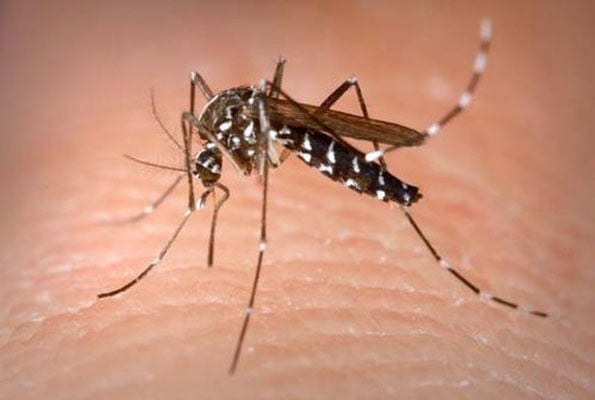Prime
Rise in unvaccinated children increasing risks of disease outbreaks - experts

A health worker vaccinates a child against polio. PHOTO / FILE
Statistics from the Health Ministry indicate that there is an increase in the number of children who have never received any of the essential vaccines.
The number almost doubled in the last two years from 55,000 in the year 2021 to 96,000 in the year 2023, according to a new assessment of the ministry's figures by researchers from the Gavi Zero Dose Learning Hub in Uganda.
The Learning Hub in Uganda is being implemented by the Infectious Diseases Research Collaboration, PATH, a global health organization, and Makerere University School of Public Health, with support from Gavi, a global vaccine alliance. The Hub aims to determine why some children are never vaccinated and many also fail to complete vaccination, to inform the national and global strategy to address the problem.
While presenting the report, the technical advisor for vaccines and immunization at PATH, Ms Jackline Anena, said they based on the data from the Health Ministry’s District Health Information Software 2 (DHIS2).
“From 2020, were at 142,000 for the zero dose children, in 2021, there was a significant reduction in these numbers [to 55,252] but in 2022 and 2023, there seems to be an increase in the number of zero dose children,” Ms Anena said while presenting the report on March 27 in Kampala.
According to the figures, in 2022, the number of zero-dose children increased to 75,952 and it continued to rise to 96,072 in 2023.
Dr Rita Atugonza, Deputy Manager for the Immunization Programme at the Health Ministry, supported the findings.
“Like most countries, we have seen tremendous improvement in our immunization coverage over the past 20 years and we were even able to maintain that momentum during the pandemic. However, in 2022, we started to note a decline in our coverage,” she said.
She said that although nationally the immunization coverage is at around 92 percent, many districts have coverage of less than 80 percent.
“This is coming on top of the fact that we are introducing more antigens (new vaccines or new types of vaccines) into the programme. In 2022 we introduced the hepatitis [vaccine] birth dose, an additional dose of polio [vaccine], and yellow fever [vaccine] at nine months,” she said.
“This year, we switched our product for rotavirus vaccine from a two-dose to a three-dose regimen and we are also going to introduce malaria vaccine in October,” she added.
Dr Atugonza warned that the country will continue to experience disease outbreaks because of the rising number of zero-dose children.
“What zero dose and under-immunized represent is outbreaks like measles. The data is beginning to show that we have these children because we are beginning to have these outbreaks. A child with measles may experience severe complications and these are also children who are likely to die before they turn five years and they are also more likely to be exposed to tuberculosis,” she said.
Ms Faith Namugaya, the Uganda Learning Hub coordinator said they are currently doing studies in Wakiso, Mubende and Kasese, which contribute some of the highest numbers of children who have never been immunized.
“We set out to generate evidence on identifying and reaching these zero dose children and under-immunised children so that we can inform interventions both in-country and at the global level,” she said.
“We are conducting a rapid assessment to quickly locate and characterize these zero dose children and under-immunised children, and missed communities and understand why they are not being reached,” she said.
According to Ms Anena, Wakiso has 25,964 zero-dose children, Mubende (3,389) and Kasese (943).
Causes and advice
“We have cross-cutting barriers to reaching the zero dose children. Fear of adverse events following immunization. Health workers have been reported that they take months without holding an outreach and when they come, they give many injections to catch up,” Ms Anena said.
“Worries include abscesses showing up in children, lameness, death, pain, and high temperature. Some see the suffering of neighbour’s child and they shy away,” she said they found in their assessment.
The technical advisor also said they found issues of inadequate facilitation of Village Health Teams for mobilization, understaffing and heavy workload more so in Health Center IIs, inadequate client-centered services, stockout of vaccines and long distance to facilities.
She said they were also told that some health facilities open late and close early, “health workers abusing caregivers, some religious and cultural beliefs that are against vaccination, negligence of caregivers to take children to the hospital.
The researchers also found that many women in the three districts are still delivering in the hands of traditional birth attendants who are less likely to advise the mother to take the child for vaccination. They also noted that the increase in the number of vaccines on immunization schedules has exacerbated vaccine hesitancy.
Ms Anena also observed that the rise in the number of elites who are anti-vaxxers could further affect immunization coverage in the country.
Both Dr Atugonza and Dr Allan Muruta, the Commissioner of Integrated Epidemiology Surveillance and Public Health Emergencies at the Ministry, said the evidence being generated by the Hub would help them reach the zero dose children.
“Let's focus on what works, scale up effectively, and address gaps for maximum impact,” Dr Muruta said.




